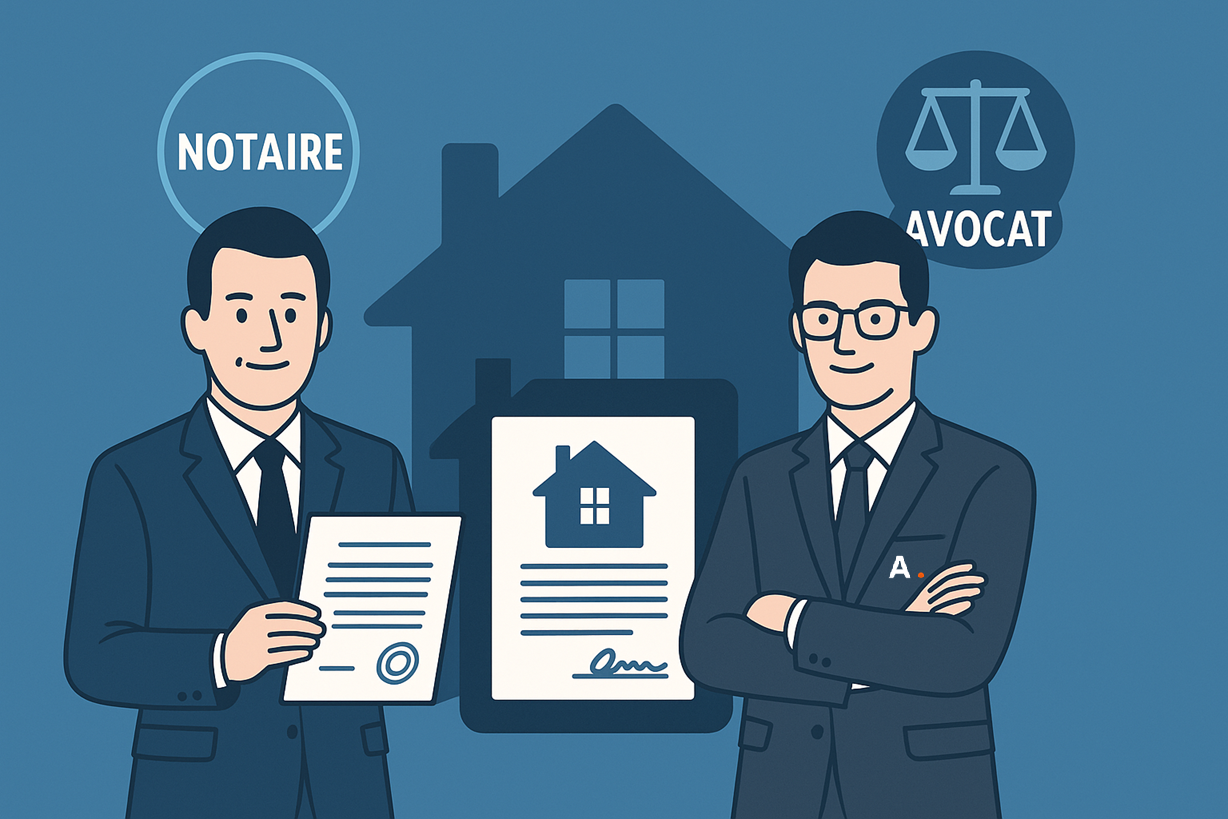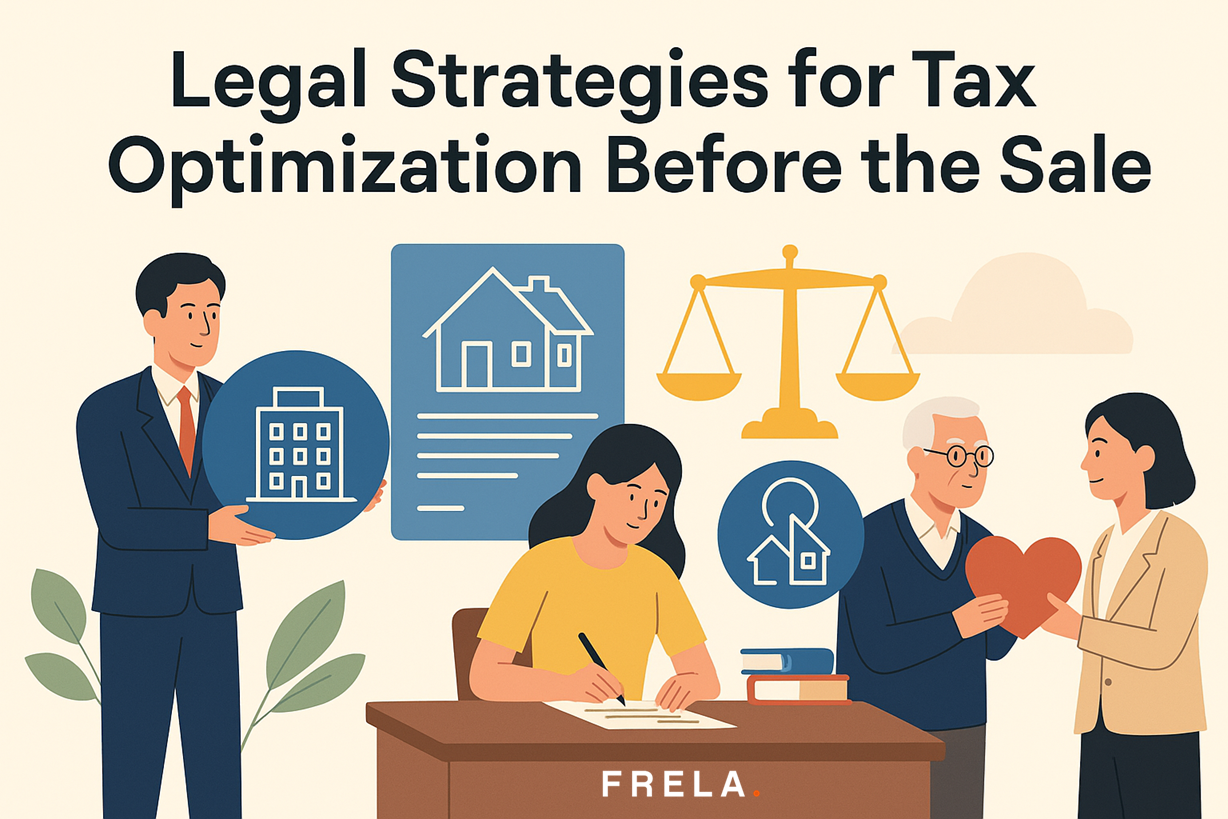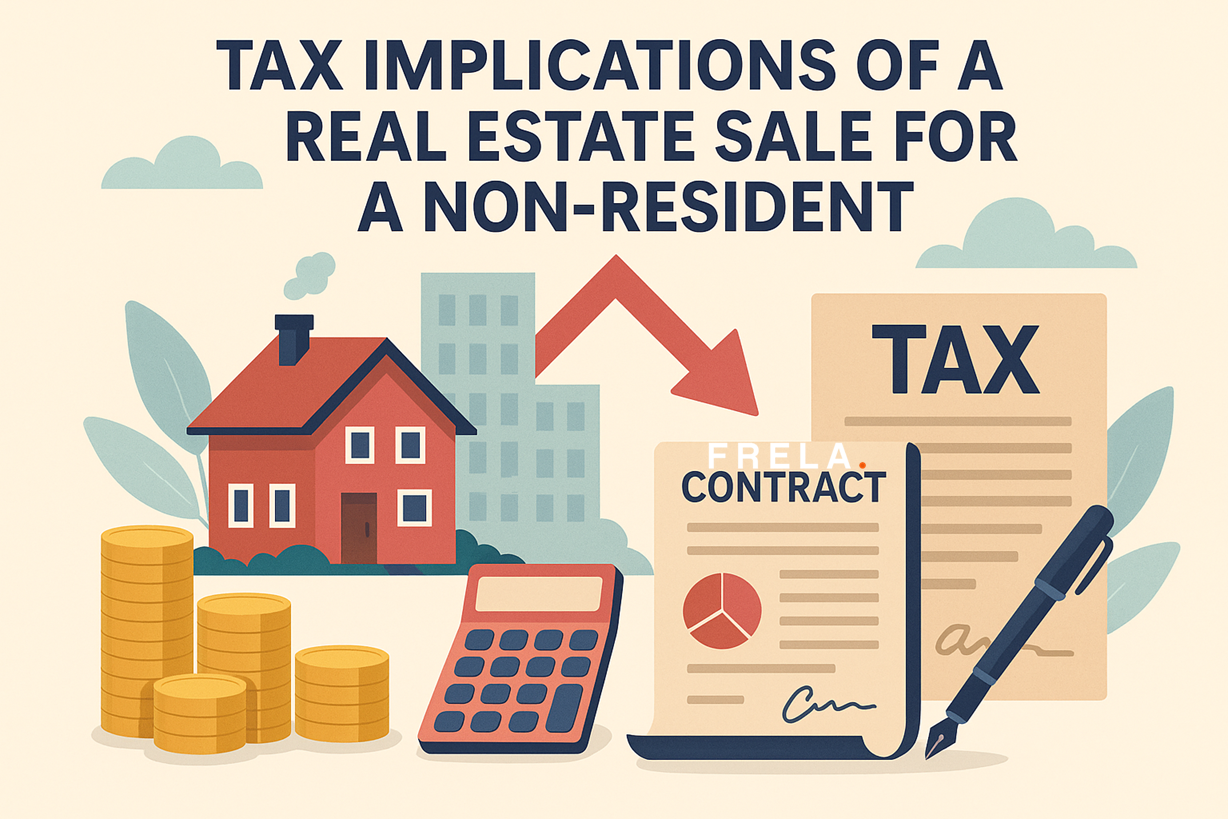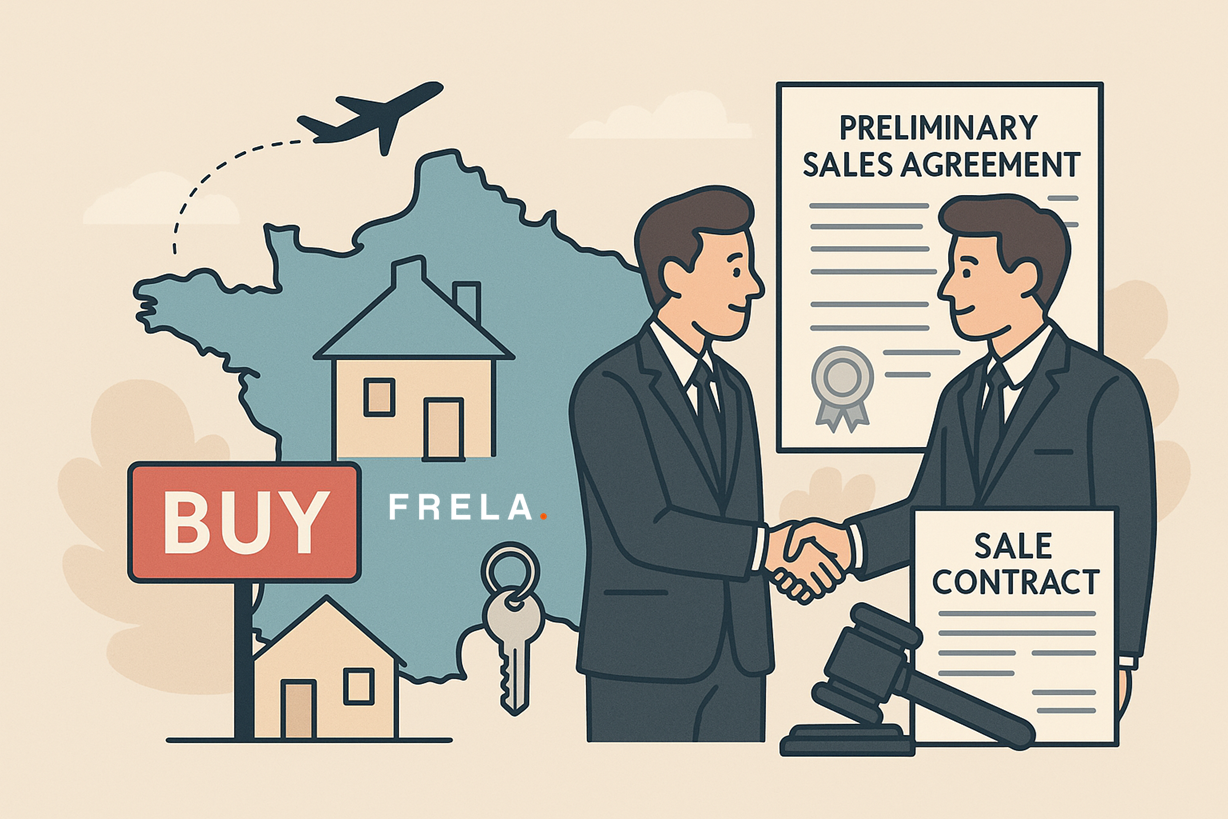Real estate FRANCE: risks to avoid when selling a property
Several legal or practical risks can threaten the smooth running of a real estate sale, particularly in an international context. As a non-resident seller, it is important to identify these pitfalls and take the necessary steps to avoid or minimize them. Here are the main risks and common errors, as well as the corresponding precautions:
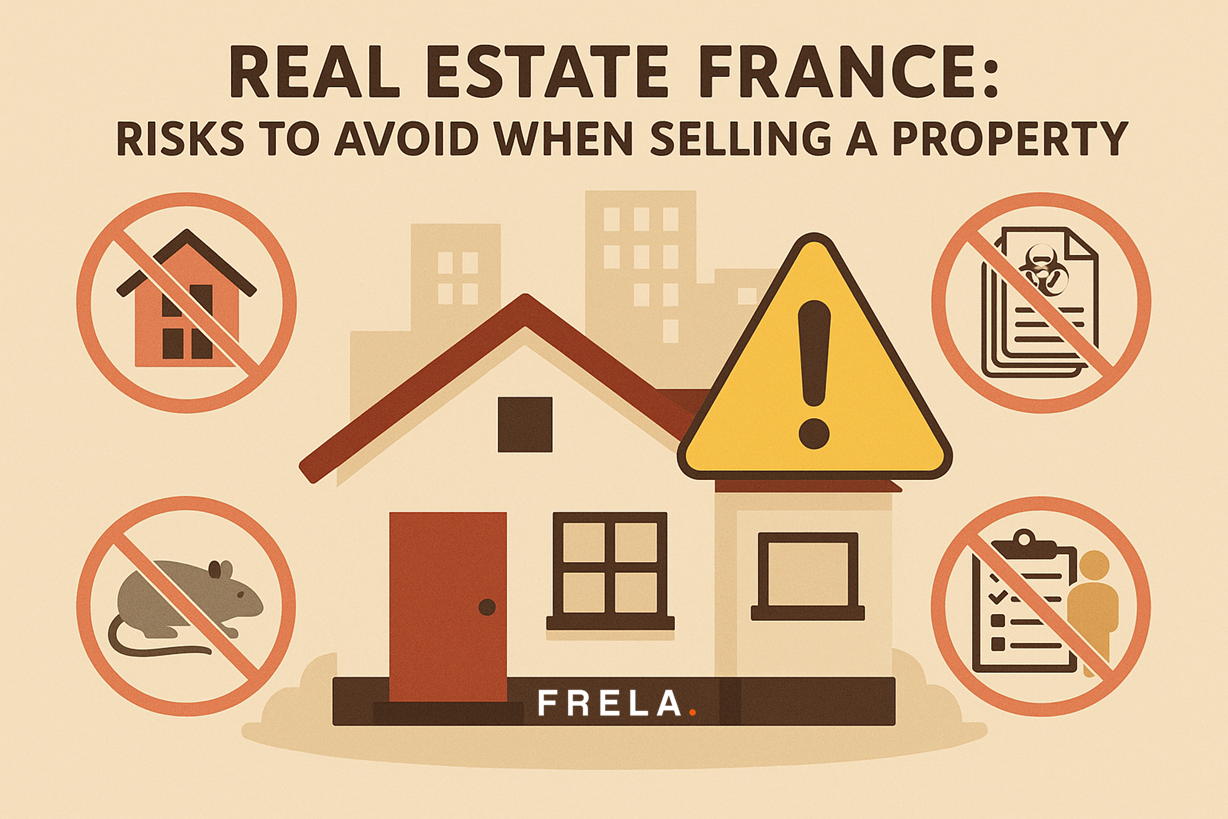
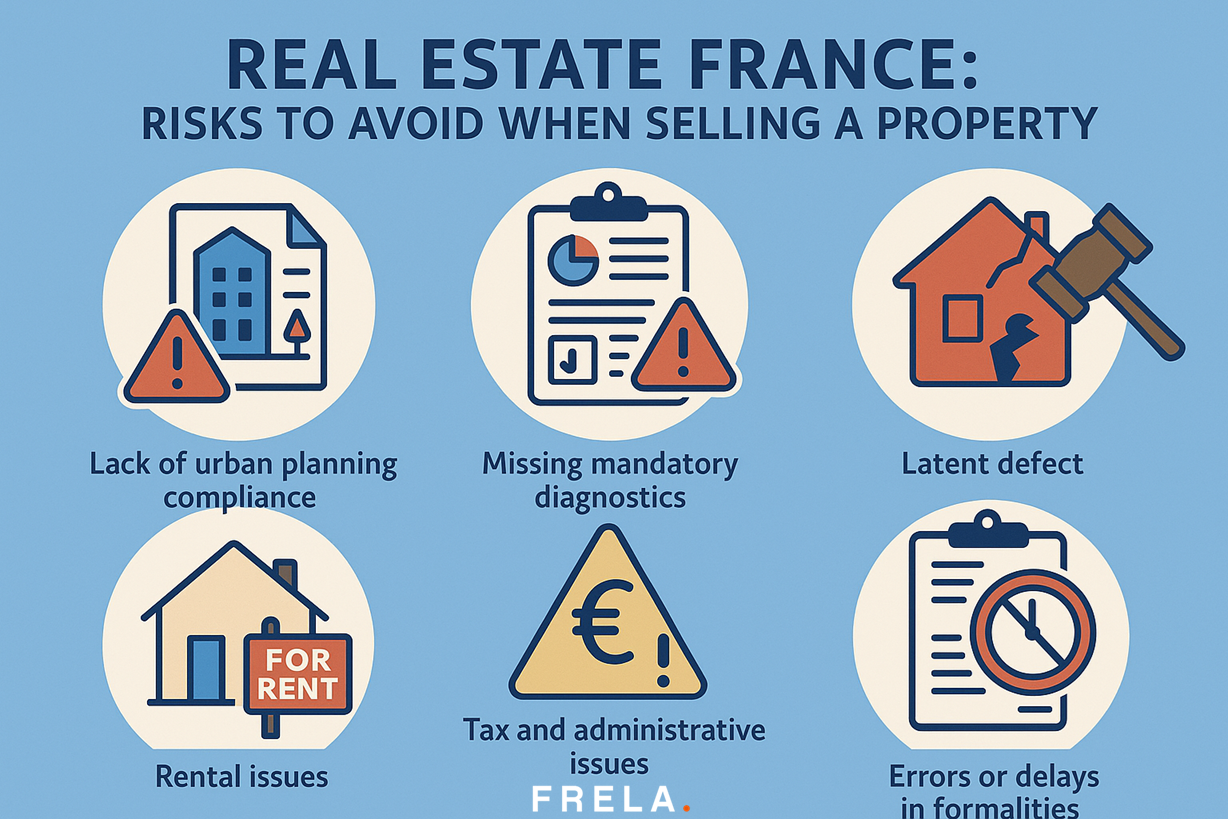
Lack of urban planning compliance (building permit):
A risk that is often underestimated is the discovery, by the buyer or notary, of work carried out without authorization or not in accordance with the permits obtained. For example, a house extension, the transformation of an attic into living space, the addition of a swimming pool or a veranda without prior declaration, etc. If the property has such irregularities, the sale may be compromised or the buyer may demand guarantees. It is therefore crucial to anticipate: carry out an audit of the history of the property. Check that all the work carried out has been subject to the required planning authorisations and that a certificate of conformity has been issued by the town hall, if applicable. In the absence of a certificate (for old works), it is possible to request a retrospective regularisation (regularisation permit) or to provide all the information to the buyer in advance. Do not conceal this information: any intentional concealment can be qualified as fraud and lead to the cancellation of the sale or damages in favour of the buyer. It is better to play fair, even if it means negotiating a price reduction or having the upgrades carried out before the sale. A lawyer will be able to advise you on whether to reveal or regularise a particular point. Note that some minor non-conformities (for example, a fence a little higher than allowed) do not prevent the sale, but must still be reported in the deed to avoid future remedies. In addition, if there is a risk of pre-emption by the municipality (urban project areas), the notary will take care of it by requesting the certificate of absence of pre-emption. Obtaining this certificate is a legal condition: failure to issue it within the deadline would render the sale null and void. It is therefore a point to watch out for (the notary usually does it automatically).
Lack of mandatory technical diagnostics:
As mentioned, the seller must provide a complete Technical Diagnosis File (DDT) (lead, asbestos, termites, DPE, electricity, gas, sanitation, natural risks, dry rot, noise, public buildings, etc. as the case may be). The absence of a diagnosis when signing the deed exposes the seller to serious consequences. On the one hand, he will not be able to exempt himself from the warranty against latent defects corresponding. This means that if a problem covered by a missing diagnosis is discovered after the sale (for example, presence of asbestos, lead, termites, dangerous gas installation), the buyer may turn against the seller, even if the latter was unaware of the problem, because the clause exonerating latent defects will be deemed unenforceable. On the other hand, the buyer could, in some cases, have the sale cancelled or obtain a reduction in the price if he demonstrates that the lack of information has prejudiced him. For example, the absence of Carrez Law footage (in co-ownership) allows the buyer to request a reduction in the price proportional to the surface area error discovered (action within 1 year). Similarly, the absence of a State of Risks and Pollution (ERP) or DPE can theoretically justify an action for nullity or a reduction in the price. Criminal sanctions are even provided for certain breaches (fines of up to €37,500 and one year in prison in the event of deliberate non-compliance with diagnostic obligations, although prosecutions are rare). Solution: Have all the diagnostics carried out by certified professionals even before they are put on sale. This way, if a problem is revealed, you will know about it as soon as the negotiations are held (and you can either remedy it, adjust your price, or fairly inform the buyer). Also check their validity dates (some are valid for 1 year, others 10 years). Append them to the compromise and the deed. This proactive approach protects you and inspires confidence in the buyer.
Latent defects and post-sale litigation:
A latent defect is a serious, non-apparent defect that precedes the sale, which renders the property unfit for its use or greatly reduces its value. The buyer has 2 years from the discovery to bring a warranty action. The private seller can be exempted from this warranty in the deed (which is the usual clause), unless he has acted in bad faith (if he knew of the defect). Despite this clause, as we have seen, it will not apply if a mandatory diagnosis is missing for this defect. Typical post-sales litigation includes: unstable foundations, concealed water infiltrations, undeclared pest infestation, etc. To avoid these problems: do not knowingly hide an important defect. If your home has a weak point (a roof to be redone, a questionable underpinning room), it is better to either repair it before the sale, or report it and sell it “as is” in complete transparency (which will allow the defect to be included in the price). Total transparency accompanied by a clause “the property is sold in the condition in which it is, the buyer acknowledges having gone through it completely with a professional…” will reduce the chances of litigation. In the event of a dispute, however, having provided all the information can protect the seller against an accusation of fraud. Fraud (fraudulent tactics to deceive the buyer) is even more serious: it can lead to the cancellation of the sale or to heavy damages if the buyer proves that the seller has deliberately concealed decisive information from him. Thus, avoiding fraud goes hand in hand with our recommendation: to communicate sincerely about the property.
Problems related to the occupants or the rental situation:
If the property is rented, there are specific rules to be respected: the tenant’s right of pre-emption (if the sale of an occupied dwelling is empty or sold in pieces), leave for sale given in the form (with 6 months’ notice before the end of the lease, offer to the tenant), etc. Failure to follow these procedures makes the sale challengeable. A non-resident must therefore ensure that he or she has issued the notice correctly or informs the buyer of the presence of a tenant (the sale will then be occupied). If it is a rented main residence, the existing tenant has a right of first refusal over any other offer. Another point: if it is a second home and the seller has lent it to a third party or if an occupant without right or title is there, the situation must be regularized before the sale. A buyer will not agree to acquire a property without the guarantee of peaceful enjoyment. The notary will in any case require a sworn statement from the seller indicating whether there is a tenant or not, and the conditions.
Unresolved tax and administrative issues:
A risk that is often ignored is that of the seller’s tax debts in France. Of course, capital gains tax will be levied, but the seller must also have paid, for example, the property tax until the day of the sale. In principle, the deed provides for a pro rata temporis and sometimes a clause for the escrow of part of the price to pay the property tax when the due date arrives (in the autumn). If the seller owes other taxes in France (for example, if he had previously undeclared rental income), the tax authorities could possibly register a legal hypothec. It is therefore advisable to be up to date with your French tax obligations. In addition, since 2021, the French tax authorities may ask non-residents for a certificate of non-taxation (or certificate of tax regularity) before releasing the funds abroad, especially if the seller leaves France leaving arrears. Check with your non-resident tax office to make sure there are no outstanding notices. The notary also checks that there is no opposition from the Treasury (Article 244 of the French Tax Code) before paying the price.
Errors or delays in formalities:
Finally, a very concrete risk is a delay in the provision of a document or the completion of a formality, which can delay the sale or even cause the deal to fail if the buyer becomes impatient. For example, in a co-ownership, you must obtain a dated statement (accounting document of charges) from the property manager – a delay or a refusal by the property manager can be problematic. The notary takes care of this, but it is better to authorize him to do so quickly. Similarly, if the seller has lost a warranty document (e.g. the ten-year warranty of a recent extension) or a certificate of inspection (individual sanitation), the time to reproduce it can be long. The precaution is to prepare a complete file as soon as the offer is accepted, with the help of the notary and/or the lawyer, to gather everything that is necessary. This avoids extensions of time and penalties for late payment.
In summary
The risks for a seller are often due to forgetfulness or lack of information. The golden rule is to be proactive and transparent: provide all the required legal documents, inform about the defects of the property, and regularize as much as possible before the sale. The support of professionals (notary, lawyer, real estate agent) makes it possible to cover all these points of vigilance. For a non-resident, even if the distance makes it more difficult to manage, these details should not be neglected: a one-off trip to France to settle an administrative problem can avoid a costly dispute later. By avoiding these pitfalls, the sale will be made serenely, without fear that a claim will disturb the achievement of your wealth objectives.
Conclusion: The sale of a property in France by a non-resident is an operation involving a specific legal and tax environment. By following the formal steps (from the mandate to the authentic deed) seriously, by taking the appropriate precautions (tax representative, declarations, powers of attorney, etc.), by optimizing if possible via legal strategies (company, donation, dismemberment) adapted to your situation, and by surrounding yourself with a competent team (notary, specialized lawyer), the non-resident seller will be able to carry out this transaction in complete security. French law offers a protective but demanding framework: it is necessary to comply strictly with it to avoid pitfalls and get the most out of your real estate investment in France. An expatriate or wise investor will thus be able to secure his real estate divestment while minimizing costs and risks, in order to fully enjoy the proceeds of the sale.
About the Author :
Business lawyers, bilingual, specialized in acquisition law; Benoit Lafourcade is co-founder of Delcade lawyers & solicitors and founder of FRELA; registered as agents in personal and professional real estate transactions. Member of AAMTI (main association of French lawyers and agents).
FRELA : French Real Estate Lawyer Agency, specializing in acquisition law to secure real estate and business transactions in France.
Paris, 15 rue Saussier-Leroy, Paris
Bordeaux, 24 Rue du manège, 33000 Bordeaux
Lille, 40 Theater Square, 59800 Lille


